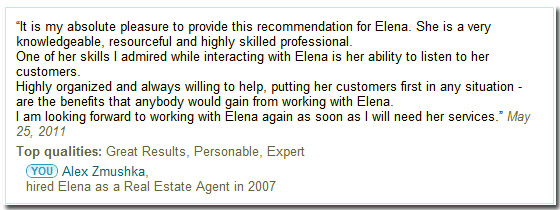

If you praise your manager’s excellent listening qualities, chances are, they’re going to be super attentive next time you come in with a project idea.

Lastly, this is also a great opportunity to subtly reinforce someone’s best traits. They read your (thoughtful and well-written) recommendation and end up clicking on your profile. Suppose someone in your industry is browsing your manager’s page. We don’t usually get the opportunity to give spontaneous thank-yous to our higher-ups, and this is the perfect, non-awkward way to show your appreciation. Writing a recommendation for your boss gives you a chance to thank them. It’s actually very helpful for the person being recommended, because it creates a holistic view of their work ethic, leadership style, skills, and so forth. On LinkedIn, for example, it’s completely acceptable to have someone lower in the ranks recommending a higher-up. We're used to the idea of managers, leaders, professors, mentors, and other superiors giving us recommendations, not the other way around. But there are times when we can give them our endorsement, too. Read More: Your 5-Minute Guide to Writing an Amazing LinkedIn Recommendation (for Anyone in Your Network)
Linkedin recommendation examples professional#
Luckily, I recently hit on an awesome way to give people a boost that’s perfect for any professional who feels like they don’t have much networking currency (or any professional, really): I’ve been writing LinkedIn recommendations-not just for colleagues and direct reports, but for my boss and other people above me. Then, sign up for our newsletter and we’ll deliver advice on landing the job right to you. SEARCH OPEN JOBS ON THE MUSE! See who’s hiring here, and you can even filter your search by benefits, company size, remote opportunities, and more. If you’re young, relatively inexperienced, in a new industry, or without many connections, you don’t have a ton of obvious opportunities to help others out. You’ll build stronger relationships, which will make your connections genuinely eager to do you favors. Instead, focus on how you can provide value to them. Experts agree: To be an effective networker, don’t think only about what other people can do for you (that’s a classic networking mistake).


 0 kommentar(er)
0 kommentar(er)
